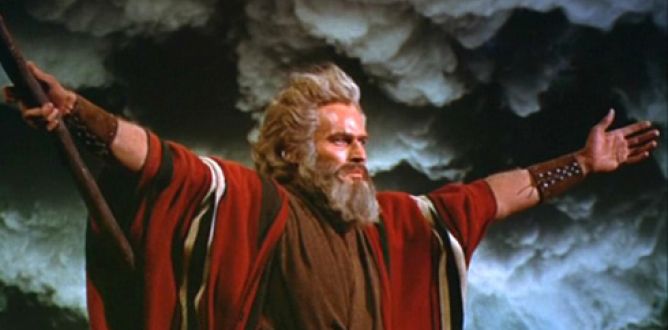
No one remembers the first person who said it, but it really is a great line:
God may have gotten his people out of Egypt, but his next job was far tougher: getting Egypt out of his people.
According to the book of Exodus, there was nothing simple or easy about the task that God entrusted to Moses. This fearful fugitive, who had spent the previous 40 years tending sheep in the Sinai wilderness, had to boldly approach Pharaoh: “The Lord says, ‘Let my people go!”
But Pharaoh was not going to yield to some upstart Hebrew representing a god no one had ever heard of. “Get back to work,” he commanded the slaves. “From now on, you will make the same number of bricks, but without straw.”
This was a tragedy for the Israelites. Instead of one step forward, they had now taken three steps back. “When they left Pharaoh, they found Moses and Aaron waiting to meet them, and they said, ‘May the Lord look upon you and judge you!’” (Exodus 5:20) The Hebrew text says literally, “You have made us stink to Pharaoh.”
Thanks for nothing, Moses.
Rejected by the very people he is trying to help, Moses groans to God: “I did everything you wanted, and things are getting worse.” “Don’t worry, Moses,” God says, “I am in charge here.” In Exodus 6:9, Moses takes that word back to his people: “Moses reported this to the Israelites, but they did not listen to him because of their discouragement and cruel bondage.”
In Hebrew, the word discouragement is literally, “shortness of breath.” They are gasping for breath, like little children who have been crying. Try explaining to disappointed children at 5:30 p.m. that people do not live by Chicken McNuggets alone. Go ahead and talk about the joys of delayed gratification, and what a valuable opportunity this is for character-building, and how learning patience will definitely pay off by the time they turn 30.
Children with “shortness of breath” usually don’t tune in to such a message. Discouragement crushes the human spirit.
People say: “I thought God was leading me into a whole new season of life. I trusted him…and things immediately got worse. My parents got sick. The estrangement with my child grew deeper. Someone who said he would always love me walked away. What’s going on?” These are the kinds of moments at which some people give up believing that God can be trusted.
Moses was experiencing just such a moment. God was asking him, in so many words, “Do you believe, Moses, that I can raise the dead? Do you believe that I can put life back into the deadness of your current situation?”
Even after the drama of their liberation from slavery, the hearts of the ancient Hebrews were still bound. Their hands may have been unshackled, but their minds were held captive by a slave mentality.
That’s on display in the Bible’s famous account of the crossing of the Red Sea. The Hebrews are free. For the first time in their lives, they have reason to hope. Then, while standing at the edge of the waters, they look back and see Egyptian chariots bearing down on them. Their response to Moses is classic: “Was it because there were no graves in Egypt that you brought us to the desert to die?”
Once again: Thanks for nothing, Moses. And you thought cynicism was invented at your family’s Thanksgiving dinner table.
Moses roars his reply in Exodus 14:13: “Do not be afraid. Stand firm and you will see the deliverance the Lord will bring you today… The Lord will fight for you. You need only to be still.”
You need only to be still.
In this context, stillness is not laziness. Nor is it passivity. Stillness means trusting that God is God, and that he is in charge of what’s happening on your calendar today. Stillness means calmness as you wait to see how he will provide. It means patience when it appears an important deadline is approaching. It means gentleness when someone else is angry, and quietness when we first get wind of disturbing news.
Just as in Bible times, God hears, God cares, and God delivers.
As the psalmist says: “Be still and know that I am God.” (Psalm 46:10)
He’s still in the business of setting prisoners free – and making a way through the deepest waters.
